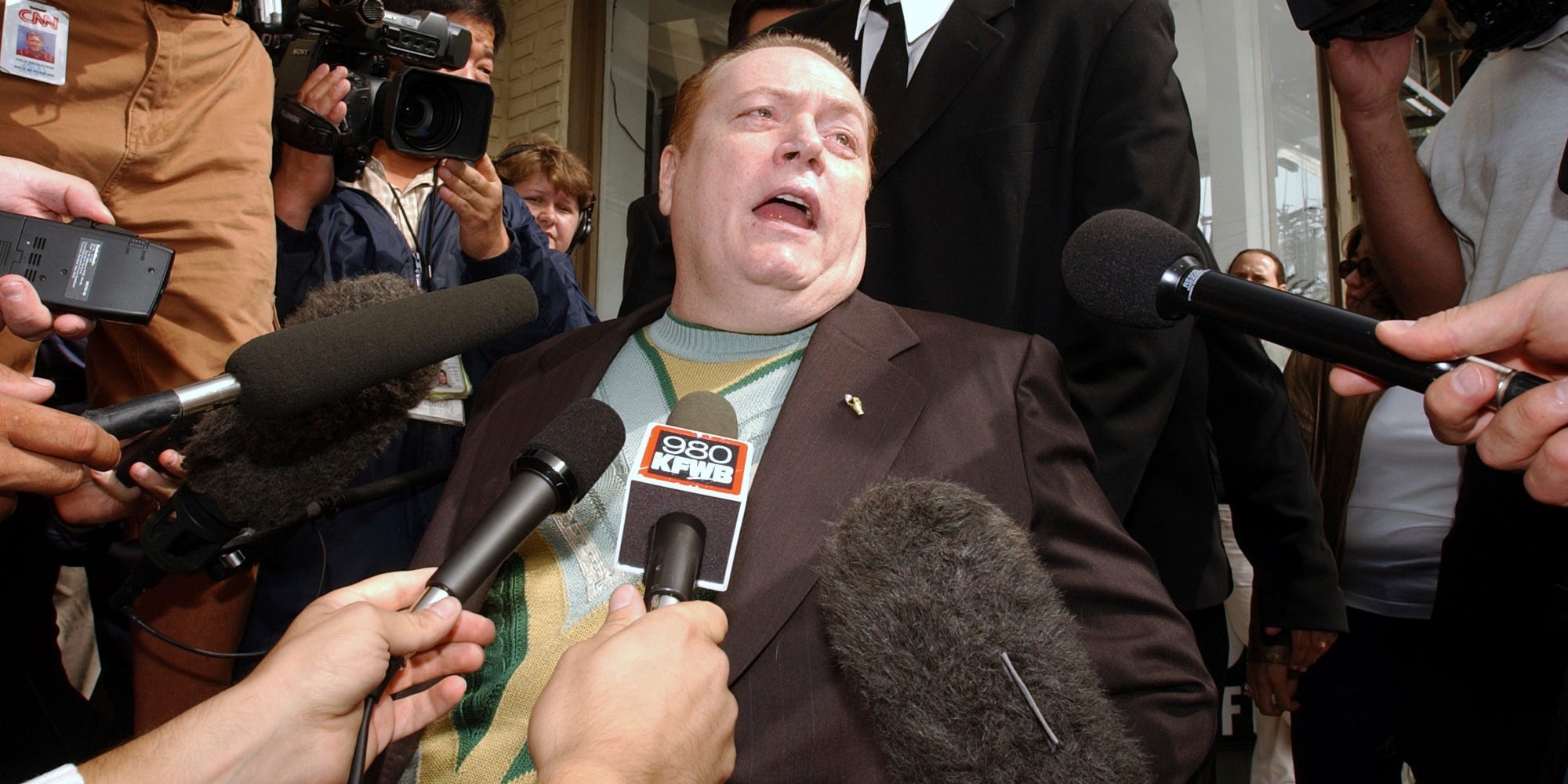
RENE MACURA/Associated Press
- Pornography publisher Larry Flynt died Wednesday at the age of 78.
- The self-appointed defender of free speech was embroiled in numerous legal battles during his career.
- Hustler Magazine made Flynt one of the most famous men in the adult-entertainment industry.
- Visit Insider’s homepage for more stories.
Larry Flynt, the notorious publisher of Hustler Magazine, died Wednesday at his home in Los Angeles, according to The Washington Post. He was 78 years old.
The New York Times reported that Flynt’s brother confirmed he had died of heart failure.
Embroiled in numerous legal battles and public controversies over his decades-long career, Flynt relished the spotlight and championed himself as a First Amendment protector, an influential political player, and one of the most famous men in the adult-entertainment industry.
Born in 1942 in Lakeville, Kentucky, the ninth-grade dropout’s story was one of rags-to-riches with ample raunch along the way.
After a short stint in the US Navy, Flynt found his true calling in the nightlife scene, buying a bar in Dayton, Ohio, in 1965 and refitting it to turn a profit that allowed him to open a new, sexier bar; one that featured nude dancers and would usher in Flynt’s eventual $100 million porn empire: The Hustler Club.
More Hustler clubs across the country quickly followed, and in 1974, Flynt launched Hustler Magazine, a monthly pornographic magazine that catapulted the publisher to fame and fortune. The magazine saw peak circulation above 2 million in the 1970s, according to The Post, as Flynt styled the publication as an alternative to other classier sex-centric magazines of the day by showcasing raw images of naked men and women, as well as crass cartoons.
The success of Hustler made Flynt a millionaire, as well as a frequent target of obscenity charges in court, as the sudden access to explicit pornography in the '70s and '80s forced an ongoing fight in the country over the regulation of pornography and the importance of free speech.
In perhaps his most famous case, Flynt won a 1988 Supreme Court decision against Reverend Jerry Falwell, in Hustler Magazine v. Falwell, after the televangelist sued Flynt for emotional distress over an ad printed in Hustler Magazine that suggested Falwell's first sexual encounter had been with his own mother in an outhouse. The decision prohibited public figures from recovering damages over parodies.
Flynt and Falwell, despite their obvious differences, reportedly became good friends in later years.
Flynt was wheelchair-bound following a 1978 shooting that left him paralyzed. He and his lawyer were shot outside a courthouse near Atlanta, where Flynt was facing obscenity charges, in an assassination attempt by serial killer and white supremacist Joseph Paul Franklin. Franklin eventually confessed, admitting he shot Flynt because he was outraged by an interracial photo published in Hustler Magazine.
Flynt's intriguing life featured myriad additional enterprises. He wrote his autobiography in 1996, and played a bit role in a Hollywood movie about himself, "The People vs. Larry Flynt," starring Woody Harrelson.
Flynt involved himself in politics, as well, launching an unsuccessful run for president in 1984 as a Republican.
Years later, in an apparent reversal, he proclaimed himself a Democrat and devoted himself to exposing conservative politicians' sex scandals. During Bill Clinton's impeachment hearings in 1998, which he found hypocritical, he offered $1 million to anyone who could provide evidence of members of Congress committing adultery. He is often credited as being responsible for the resignation of Rep. Bob Livingston, the incoming House Speaker at the time, who admitted he had "strayed" from his marriage at times.
Flynt was married five times. He disowned one of his daughters, Tonya Flynt-Vega, an anti-porn activist. In her 1998 book, "Hustled," Flynt-Vega accused her father of molesting her as a child. He emphatically denied the accusations.
Flynt is survived by his current wife, Elizabeth Berrios, whom he married in 1998, and his children and grandchildren.